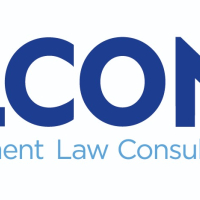31.03.2021
Limited company or personal name?
Limited company or personal name? This is one of the first questions for any investor looking to purchase a buy-to-let property.
The answer is very much down to an individual’s circumstances, objectives, and tax calculations.
One of the biggest differences between the two options is that profits for a limited company are liable for corporation tax, while personal profits are liable for income tax – although landlords are subject to personal tax if they take income out of the company.
However, the outlook for corporation tax and income tax is set to change following the latest Budget.
The income tax personal allowance and higher rate threshold will be increased as planned in April 2021, but then maintained at that level until April 2026.
Meanwhile the top rate of corporation tax will increase from April 2023 to 25 per cent.
However, it is worth noting that the top rate will only apply on profits over £250,000.
The rate for small profits under £50,000 will remain at 19 per cent and there will be relief for businesses with profits under £250,000 so that they pay less than the main rate.
What will this mean for your landlord customers?
It’s likely that the rate of corporation tax for many will remain the same if their profits are less than £50,000.
But it may be a consideration for some and it’s always worth buy-to-let investors speaking to a specialist tax adviser.
The difference between corporation tax and income tax is just one thing to think about of course.
Here are some of the pros and cons of investing in buy to let through a limited company versus personal name.
Pros of a limited company
Restrictions on mortgage interest relief don’t apply to a limited company.
For most landlords, corporation tax rates are lower than income tax rates and are likely to remain so.
Limited companies are considered separate legal entities and therefore offer limited liability protection to landlords.
A limited company provides more varied opportunities for tax planning.
Cons of a limited company
Landlords will be subject to personal tax if they take income out of the company.
Added administration and potential costs.
If an existing property is transferred to a limited company, it will be subject to capital gains tax and stamp duty tax.
There are fewer lenders and products for limited companies, although this situation is changing.
Whether you choose to invest in buy to let in their own name or through a limited company, there continues to be a good range of mortgage options for landlords with a diverse set of circumstances.
Increasingly, lenders are able to offer options for both with the same pricing available to both sets of customers.
The answer is very much down to an individual’s circumstances, objectives, and tax calculations.
One of the biggest differences between the two options is that profits for a limited company are liable for corporation tax, while personal profits are liable for income tax – although landlords are subject to personal tax if they take income out of the company.
However, the outlook for corporation tax and income tax is set to change following the latest Budget.
The income tax personal allowance and higher rate threshold will be increased as planned in April 2021, but then maintained at that level until April 2026.
Meanwhile the top rate of corporation tax will increase from April 2023 to 25 per cent.
However, it is worth noting that the top rate will only apply on profits over £250,000.
The rate for small profits under £50,000 will remain at 19 per cent and there will be relief for businesses with profits under £250,000 so that they pay less than the main rate.
What will this mean for your landlord customers?
It’s likely that the rate of corporation tax for many will remain the same if their profits are less than £50,000.
But it may be a consideration for some and it’s always worth buy-to-let investors speaking to a specialist tax adviser.
The difference between corporation tax and income tax is just one thing to think about of course.
Here are some of the pros and cons of investing in buy to let through a limited company versus personal name.
Pros of a limited company
Restrictions on mortgage interest relief don’t apply to a limited company.
For most landlords, corporation tax rates are lower than income tax rates and are likely to remain so.
Limited companies are considered separate legal entities and therefore offer limited liability protection to landlords.
A limited company provides more varied opportunities for tax planning.
Cons of a limited company
Landlords will be subject to personal tax if they take income out of the company.
Added administration and potential costs.
If an existing property is transferred to a limited company, it will be subject to capital gains tax and stamp duty tax.
There are fewer lenders and products for limited companies, although this situation is changing.
Whether you choose to invest in buy to let in their own name or through a limited company, there continues to be a good range of mortgage options for landlords with a diverse set of circumstances.
Increasingly, lenders are able to offer options for both with the same pricing available to both sets of customers.
VJ Financial Solutions are an Independent Specialist Consultancy, we provide Commercial and Business Finance support to SME clients throughout the whole of the UK. Whether your business is well…
Property
Why Do We Need Emergency Lighting?
Emergency lighting plays a critical role in ensuring life safety first in any…
Employment & HR
Labour’s new Employment Rights Bill: challenges employers...
The introduction of Labour’s Employment Rights Bill on 10th October 2024 has created a significant shift in how…
More Articles
Business Management
The Value of a Sustainability Strategy in the Tender Process
In today’s competitive landscape, businesses face increasing pressure to demonstrate their commitment to…
Business Management
Unlocking the Power of Raw Financial Data
At Master of Coin Consulting, we offer independent strategic finance advice to help micro to medium-sized businesses…
Would you like to promote an article ?
Post articles and opinions on Professionals UK
to attract new clients and referrals. Feature in newsletters.
Join for free today and upload your articles for new contacts to read and enquire further.







